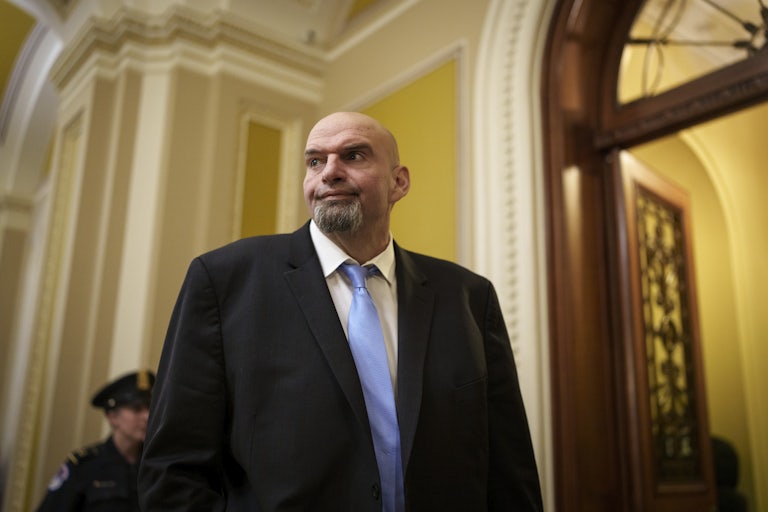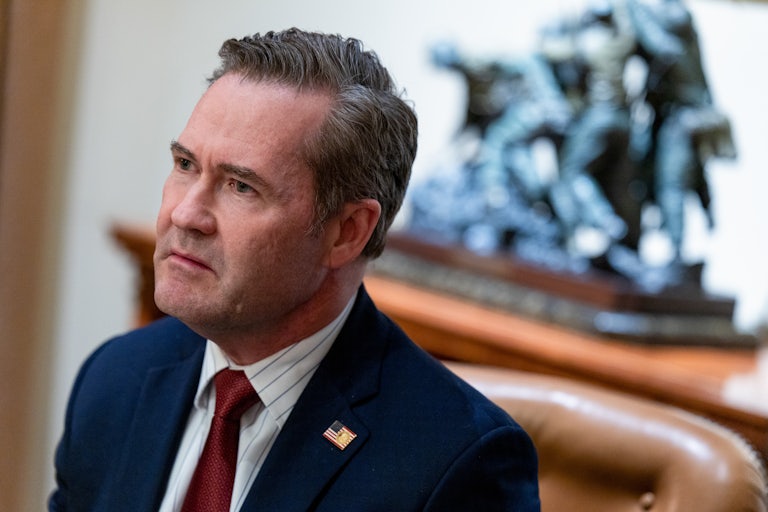Trump’s Next National Security Adviser Might Be His Worst Ally
Stephen Miller is reportedly under consideration to join the president’s Cabinet after Mike Waltz’s abrupt dismissal.

White House deputy chief of staff Stephen Miller may be up next for a new position in Donald Trump’s administration: Axios reported Friday that he’s a top candidate to replace Mike Waltz, Trump’s departing national security adviser.
Miller, the ghoulish white nationalist behind the president’s anti-immigrant crusade, is already serving as the president’s adviser on Homeland Security; reportedly he runs the Homeland Security Council “like clockwork.”
Miller has already been working with the National Security Council, running what The Atlantic reported was the “most active and well-staffed” section on homeland security, which at times operated entirely independently from the leadership office previously run by Waltz. It worked so well that Alex Wong, Waltz’s deputy, expressed concerns about the perceived split between the two factions.
It’s unlikely that Miller’s work as a homeland security adviser would stop him from taking on an additional role: Right now, Secretary of State Marco Rubio has four. The secretary is also serving as the head of what remains of the United States Agency for International Development and the acting archivist at the National Archives and Records Administration—and in doing so, has found himself leading both an agency that has violated the Federal Records Act and the one that is meant to ensure that doesn’t happen.
Two White House sources told Axios that Miller’s work with Rubio made him well suited for the role. Another said that the fiery advocate had already expressed his interest in taking on the job, and another said that “if Stephen wants the job, it’s hard to see why Trump wouldn’t say yes.”
In recent weeks, Miller has been a fierce advocate for the Trump administration’s immigration policies—sometimes too fierce—and has set off on unhinged rants during multiple television interviews and addresses.









